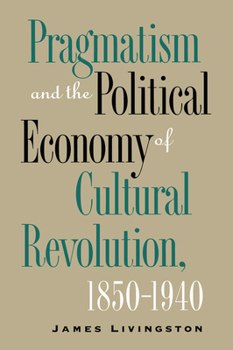Pragmatism and the Political Economy of Cultural Revolution, 1850-1940
(Part of the Cultural Studies of the United States Series)
Select Format
Select Condition 
Book Overview
The rise of corporate capitalism was a cultural revolution as well as an economic event, according to James Livingston. That revolution resides, he argues, in the fundamental reconstruction of selfhood, or subjectivity, that attends the advent of an 'age of surplus' under corporate auspices. From this standpoint, consumer culture represents a transition to a society in which identities as well as incomes are not necessarily derived from the possession of productive labor or property. From the same standpoint, pragmatism and literary naturalism become ways of accommodating the new forms of solidarity and subjectivity enabled by the emergence of corporate capitalism. So conceived, they become ways of articulating alternatives to modern, possessive individualism. Livingston argues accordingly that the flight from pragmatism led by Lewis Mumford was an attempt to refurbish a romantic version of modern, possessive individualism. This attempt still shapes our reading of pragmatism, Livingston claims, and will continue to do so until we understand that William James was not merely a well-meaning middleman between Charles Peirce and John Dewey and that James's pragmatism was both a working model of postmodern subjectivity and a novel critique of capitalism.
Format:Paperback
Language:English
ISBN:0807846643
ISBN13:9780807846643
Release Date:September 1997
Publisher:University of North Carolina Press
Length:424 Pages
Weight:0.30 lbs.
Dimensions:1.1" x 5.9" x 9.1"
Customer Reviews
0 rating





